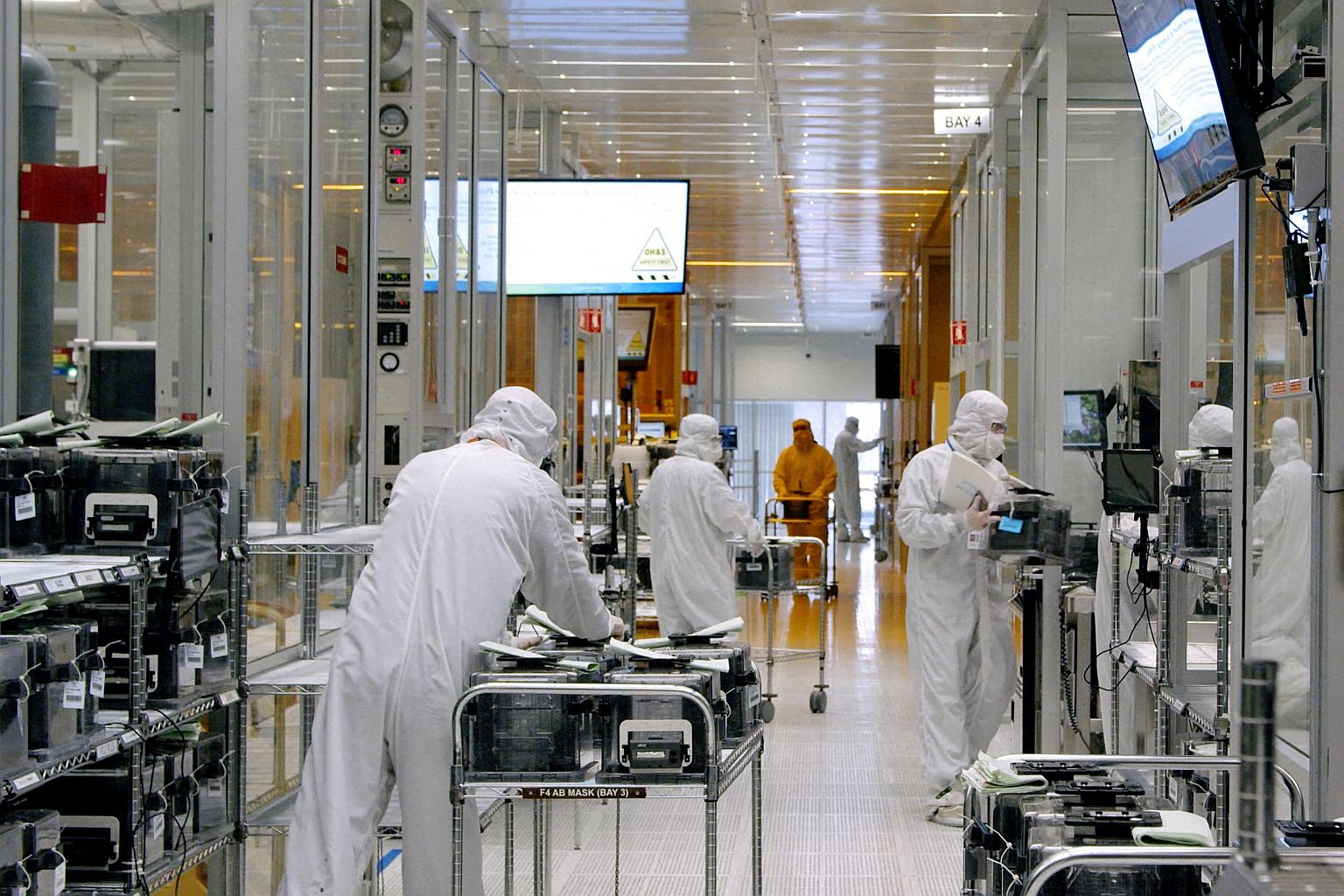Biden to sign Bill to boost US chips, compete with China
Sign up now: Get ST's newsletters delivered to your inbox

Workers inside SkyWater Technology Inc, a US semiconductor manufacturer where computer chips are made, in Minnesota.
PHOTO: REUTERS
WASHINGTON (REUTERS, BLOOMBERG) - President Joe Biden on Tuesday will sign a Bill to provide US$52.7 billion (S$72.6 billion) in subsidies for United States semiconductor production and research and to boost efforts to make the US more competitive with China's science and technology efforts.
The White House is touting investments that chip companies are making even though it remains unclear when the US Commerce Department will write rules for reviewing grant awards and how long it will take to underwrite projects.
The legislation, now called the Chips and Science Act, first passed the Senate in June last year but lingered in the House for months, and it took more than one year to reconcile the two chambers' versions.
Some Senate Democrats had criticised the White House for not pushing the House and Speaker Nancy Pelosi to get the legislation over the finish line sooner.
The chips Bill is at the centre of the Biden administration's effort to reduce dependence on Asian nations like Taiwan and South Korea, whose home-grown companies are leading the market, and to address supply chain disruptions and resulting price hikes for certain goods containing semiconductors.
Biden's team and lawmakers have stressed the national security implications of the Bill, saying it was vital to competing with and countering China.
The chief executives of Micron, Intel, Lockheed Martin, HP and Advanced Micro Devices will attend the signing, set for 10am EDT (10pm Singapore time), as will Cabinet officials and auto industry and union leaders, including United Auto Workers President Ray Curry, the White House said.
Also attending will be governors of Pennsylvania and Illinois, the mayors of Detroit, Cleveland and Salt Lake City, and lawmakers.
The White House said the Bill's passage was spurring new chip investments.
It noted that Qualcomm on Monday had agreed to buy an additional US$4.2 billion in semiconductor chips from GlobalFoundries's New York factory, bringing its total commitment to US$7.4 billion ($10.2 billion) in purchases through 2028.
The White House also said Micron was announcing a US$40 billion investment in memory chip manufacturing, which would boost US market share from 2 per cent to 10 per cent.
The legislation aims to alleviate a persistent shortage that has affected everything from cars, weapons, washing machines and video games.
Thousands of cars and trucks remain parked in south-east Michigan awaiting chips as the shortage continues to impact automakers.
A rare major foray into US industrial policy, the Bill also includes a 25 per cent investment tax credit for chip plants, estimated to be worth US$24 billion.
The legislation authorises US$200 billion over 10 years to boost US scientific research to better compete with China. Congress would still need to pass separate appropriations legislation to fund those investments.
China had lobbied against the semiconductor Bill. The Chinese Embassy in Washington said China "firmly opposed" it, calling it reminiscent of a "Cold War mentality."
Many US lawmakers had said they normally would not support hefty subsidies for private businesses but noted that China and the European Union had been awarding billions in incentives to their chip companies.
They also cited national security risks and huge global supply chain problems that have hampered global manufacturing.


